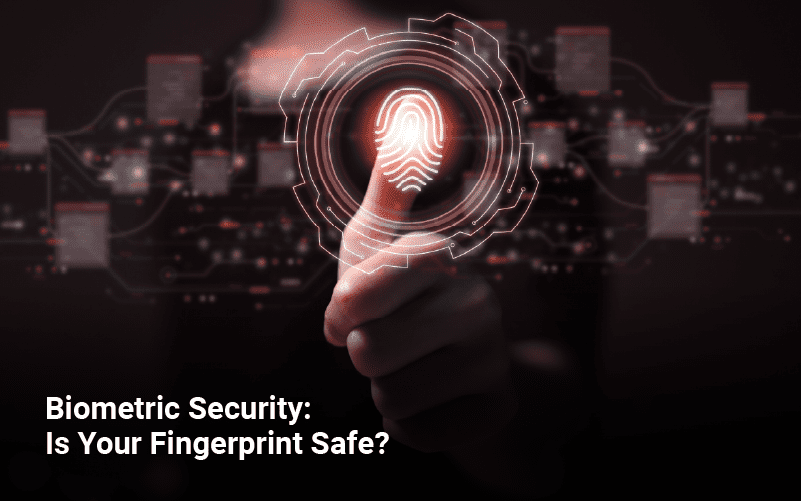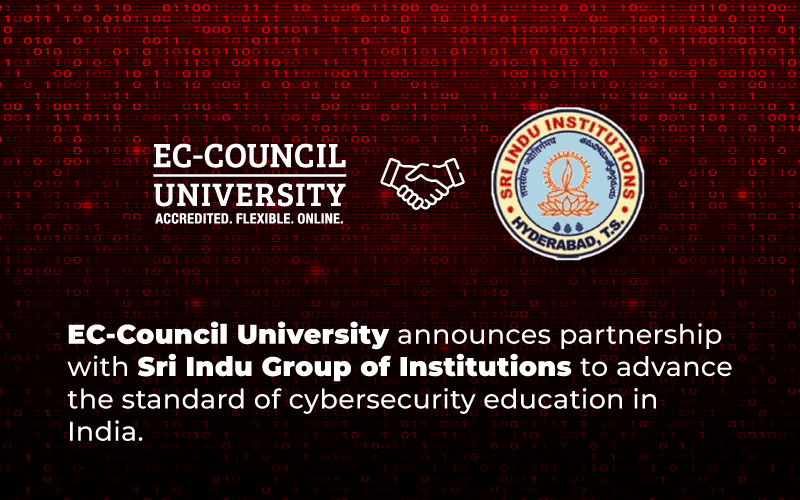November 15, 2022 | Michelle | ECCU
Rarely a day goes by without hearing about devastating ransomware attacks or breaches of sensitive information. No matter the size or reputation of a company, all are at risk of being vulnerable to cyber threats. This can cause significant harm, such as shutting down business operations or making customers vulnerable to identity theft. Now more than ever, it’s crucial for organizations to secure their computer systems and applications. Unfortunately, a shortage of skilled cybersecurity professionals leaves many unable to prevent attacks.
If you’ve been considering a career in cybersecurity, there are ample opportunities to line up a well-paying job. Demand is high and competition is low, so there’s no better time than now to strive for this profession. In this article, we’ll uncover the five basic job requirements to kickstart your career in cybersecurity. You’ll also learn about the various online cybersecurity programs EC-Council University (ECCU) offers to help you succeed.
The Cybersecurity Landscape
Cybersecurity is an ever-growing field as security needs increase from small businesses to enterprises. Cybercriminals have become more innovative and adept at hacking into computers and wreaking havoc on systems essential to organizations’ daily operations that may store sensitive information.
Cybersecurity has great career prospects for the demand is high and the number of skilled professionals is low. The Occupational Outlook Handbook (2022, September 8) indicates that the job outlook for information security analysts looks promising at 35% for 2021-31, which is faster than the average. In 2021, there were 163,000 jobs with a median pay of $102,600 per year and $49.33 per hour (U.S. Bureau of Labor Statistics).
Cybersecurity Skillset in Demand
Some of the skills employers seek in cybersecurity include:
- Security analysis and investigations
- App security
- Cloud security
- Network security
- Database security
- Mobile computing security
- Penetration testing
- Risk and compliance administration
Significant shortages exist in cloud computing security, security analysis and investigations, and application security. Next, you’ll learn about the eligibility criteria necessary to qualify for many of these cybersecurity positions.
Eligibility Criteria
Cybersecurity is a broad discipline that encompasses a wide range of specialties. Most people start with a basic understanding of information technology and information security. From there, they can specialize in areas such as computer forensics and application security.
To begin a cybersecurity career, you don’t essentially require a degree, but having one gives you an edge over your contenders.
- Undergraduate degree: Many established cybersecurity professionals advanced to their positions over time and didn’t have a Bachelor of Science Degree in Cyber Security (BSCS). However, employers currently require a degree in computer science or cybersecurity; some even look for prospective applicants with an advanced degree, such as a Master of Science Degree in Cyber Security (MSCS).
- Certifications: Some areas of cybersecurity may require industry-specific certifications, including network security, computer forensics, and ethical hacking. These might include C|PENT, E|CIH, and EDRP among others.
- Programming languages: Depending on the position sought, you’ll be required to know the following computer languages: C++, Hadoop, Java, MySQL, .NET, Perl, PHP, Python, Ruby, and Shell, among others. You may also need to know various operating systems (e.g., Windows, O.S., and Linux) and cloud-based service providers (e.g., AWS, GCP, Microsoft Azure, and OpenStack). Specialty areas such as forensics and penetration testing have their own tools that you’ll be required to learn.
- Non-technical skills: Some roles may require non-computer skills. These might include skills in analysis, communication, strategy, creative thinking, problem-solving, and so on.
Hands-On Experience/Projects
When beginning a career in cybersecurity, it can be challenging to secure an entry-level job. Most employers expect you to have one to three years of experience. You can gain experience while you’re still working towards a certification or degree program in cybersecurity, and by the time you complete your studies, you’ll be ahead of the game.
There are many benefits of hands-on learning, which have proven to be more effective in preparing people for jobs. An excellent way to get hands-on exposure to cybersecurity is by getting involved in hacking opportunities. EC-Council helps students gain experience through the iLabs hacker program. You will get access to real-world tools and scenarios.
EC-Council University Can Help You Kickstart Your Career in Cybersecurity
Getting started on a career in cybersecurity is pretty straightforward, especially when you take advantage of all that’s offered at EC-Council University (ECCU). Following are the most important steps you need to keep in mind as you pursue your new career:
1. Gain the Necessary Knowledge
Get specialized training through cybersecurity certifications, courses, or degree programs. Many programs are available, including online cybersecurity degrees like those offered by ECCU.
2. Pass an Exam to Get Certified
Once you complete the required ECCU coursework, you’ll need to be tested on your knowledge. Cybersecurity certification exams are offered to students as part of their program. After you pass the exam, you’ll be awarded a certification. This credential tells employers that you’re well-equipped with the basic knowledge needed as a cybersecurity professional.
3. Showcase Your Expertise
Create a keyword-rich resume showcasing your education and skills and any quantifiable accomplishments. You can also build a cybersecurity portfolio of projects completed through ECCU iLabs. Host your projects on GitHub and share the link with prospective employers.
4. Apply for Positions
Get your career in motion by exploring internships and entry-level positions. You can find these on company employment pages, government websites, job boards, and social media platforms.
5. Network with Cybersecurity Professionals
Networking with peers and cybersecurity professionals in your area and online is an invaluable resource often underutilized. You can do this through local Meetups, in LinkedIn groups, and by joining industry associations. This is a great way to learn from experienced people and get insider information on job openings.
Conclusion
The demand for cybersecurity professionals is high, making it the ideal career for anyone interested in computer technology. Plus, jobs at salaries reaching six figures are plentiful, and industry growth is expected to continue rising. While a degree isn’t always necessary, obtaining a bachelor’s degree and certifications through ECCU will give you a huge advantage. An advanced degree will also benefit you if you want to excel in your career. Don’t forget that their programs provide opportunities to gain hands-on experience, as most employers expect it. For more details on the programs, you can contact ECCU.
References
U.S. Bureau of Labor Statistics. Occupational Outlook Handbook.
EC-Council. What are the Benefits of Hands-On Learning? (January 17, 2022). https://www.eccu.edu/blog/cybersecurity/what-are-the-benefits-of-hands-on-learning/
EC-Council. (n.d.). Master’s in Cyber Security (MSCS). https://www.eccu.edu/academics/master-of-science-in-cyber-security/
EC-Council. What are the Benefits of Hands-On Learning? (January 17, 2022). https://www.eccu.edu/blog/cybersecurity/what-are-the-benefits-of-hands-on-learning/
EC-Council. (n.d.). Online Cyber Security Degrees. https://www.eccu.edu/academics/online-cyber-security-degrees/
About the AuthorMichelle is an entrepreneur w/ 20+ years as a writer, designer, and marketing guru with a background in education, medicine, and the environment. As a Ph.D. candidate, she researches biomimicry and has an M.S. in Marcom, an MPhil in management finance, and a B.A. in premed biology.








